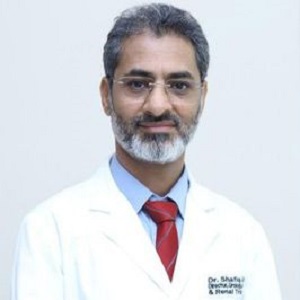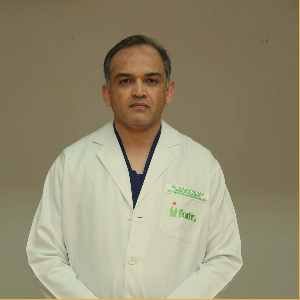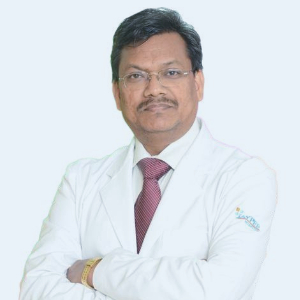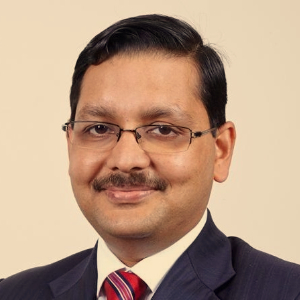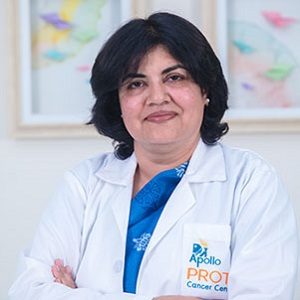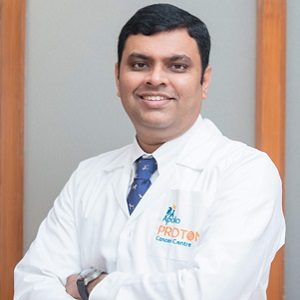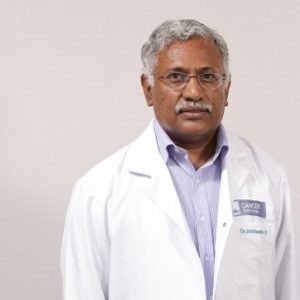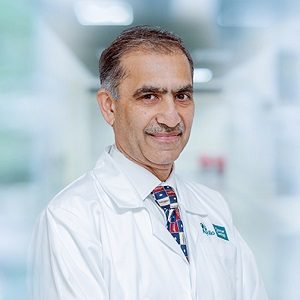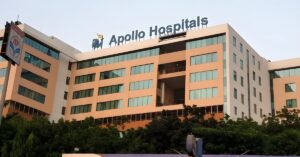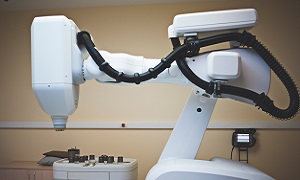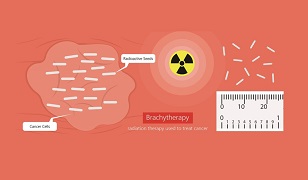Best Prostate Cancer treatment Doctors in India
- Director – Urology, Andrology & Renal Transplants | BLK Hospital, New Delhi, India
- 18+ Years Experience
- BLK Super Specialty Hospital, New Delhi
Profile Highlights:
- Dr. Shafiq Ahmed is a distinguished Urologist, Uro-Oncologist, and Robotic Kidney Transplant Surgeon, currently serving as the Director of Urology, Andrology & Renal Transplant at BLK-Max Super Speciality Hospital in New Delhi.
- With over 18 years of experience in the field, Dr. Ahmed has established himself as a leading authority in urology and renal sciences, having performed more than 15,000 urological procedures.
- Dr. Ahmed’s academic contributions are equally impressive such as MBBS, MS (General Surgery), DNB (Urology), MNAMS.
- Urologist, Gurugram, India
- Over 20 years’ experience
- Artemis Hospital, Gurgaon
Profile Highlights:
- Dr. Rajiv Yadav is a reputed urologist in India with great experience in Prostate, Kidney & Urinary bladder disorders.
- His clinical focus is on Robot-assisted Laparoscopic Surgery for Prostate Cancer, Kidney Cancer, and Urinary bladder cancers.
- He completed his training at the most prestigious institutes including AIIMS, Delhi & Weill Cornell Medical & New York-Presbyterian Hospital, USA.
- Top Surgical Oncologist | Max Hospital, Saket, New Delhi, India
- 21+ Years Experience
- Max Super Specialty Hospital, Saket, New Delhi
Profile Highlights:
- Dr. Pawan Gupta is a well-known Surgical Oncologist in India having more than 2 decades and has performed over 7000 onco-surgeries for head and neck, thoracic, breast, GI, and gynecological cancers.
- Before his current role at Max Healthcare, he served as the Additional Director of Surgical Oncology at Jaypee Hospital in Noida (2013-2018).
- Surgical Oncologist, Gurugram, India
- Over 26 years’ experience
- Fortis Memorial Research Institute
Profile Highlights:
- Dr. Vedant Kabra is a reputed Surgical Oncologist with specializations in the surgical treatment of breast, head and neck, thoracic, urological, and GI cancers.
- He has more than 20 years of experience in the field and has performed more than 12,000 cancer surgeries related to breast, GI, head, and neck, and Thoracic and GI cancers.
- Dr. Vedant Kabra received his training in surgical oncology from some of the premier institutes of the world including the National Cancer Center, Singapore, and Tata Memorial Hospital, Mumbai
- He has been a part of several prestigious hospitals in India and has successfully performed several complex cancer procedures including Robotic Surgery for Cancer.
- Radiation Oncologist, Chennai, India
- Over 33 years’ experience
- Apollo Proton Cancer Centre
Profile Highlights:
- Dr. Sapna Nangia is a highly proficient clinical and radiation oncologist with versatile experience in cancer management.
- She has an experience of more than 33 years as a doctor across various eminent institutions in the country.
- Radiation Oncologist, Chennai, India
- Over 15 years’ experience
- Apollo Proton Cancer Centre
Profile Highlights:
- Dr. Srinivas Chilukuri has been in one of the top layers of Oncologists in India. He is a renowned Radiation Oncologist with extensive experience. He is also a major thought leader in the field, particularly with regard to high precision radiation treatment, which includes Particle Beam Radiation.
- Radiation Oncologist, Chennai, India
- Over 25 years’ experience
- Apollo Cancer Centre
Profile Highlights:
- Dr. Mahadev P is a radiation oncologist with 25+ years of experience and has played a major role in starting the Diplomate of National Board course in Radio Treatment in 2005.
- After getting trained in Australia, Dr. Mahadev P started Prostate Brachy Treatment at Apollo Specialty Cancer Hospital.
- Dr. Mahadev is also trained in Cyberknife radiosurgery – the only system in the world to treat tumors in the body with sub-millimeter accuracy.
- Radiation Oncologist, Chennai, India
- Over 24 years’ experience
- Apollo Cancer Centre
Profile Highlights:
- Dr. Rathna Devi is a senior Radiation Oncologist who has an experience of 24 years in the field.
- She completed MBBS from M.S. Ramaiah Medical College, Bangalore University, and a Diploma in Radio Treatment from Madras Medical College, Dr. MGR Medical University.
- Dr. Rathna Devi’s areas of expertise include Cranial Cyberknife Radiosurgery, Intensity Modulated Radio Treatment (IMRT), and Stereotactic Body Radio Treatment (SBRT).
- Radiation Oncologist, Chennai, India
- Over 10 years’ experience
- Apollo Proton Cancer Centre
Profile Highlights:
- Dr. Ashwathy Susan Mathew has been an eminent doctor hailing from the Department of Radiation Oncology Apollo Proton Cancer Centre, Chennai.
- She has performed extensive research in the diagnosis and treatment of Gastro-Intestinal Cancers and related metastasis.
- She has been awarded the Parvati Devi Gold Medal for Best Paper at the 34th Annual Conference of the Association of Radiation Oncologists of India.
- Radiation Oncologist, Chennai, India
- Over 30 years’ experience
- Apollo Cancer Centre Chennai
Profile Highlights:
- Dr. Sanjay Chandrasekar is one of the top Radiation Oncologists in Chennai who has an extensive experience of more than 30 years in the field.
- He is currently serving as a Senior Consultant of Radiation Oncology at Apollo Cancer Centre in Chennai.
- His 30+ years-long journey in the field of oncology has brought him a lot of appreciation and recognition in his medical career.
- He has a great deal of expertise treating a range of cancer ailments such as brain tumors—both benign and malignant, head and neck cancers, lung cancer, and uro-gynecological cancers.
- Over the years he has also published numerous papers in peer-reviewed journals on both national and international level. In addition, he has received several honors and commendations for his efforts.
Best Prostate Cancer Treatment Hospitals in India
- City: New Delhi, India
Hospital Highlights:
- Equipped with 650 beds, BLK-Max Super Speciality Hospital is the largest stand-alone private sector hospital in Delhi.
- With over 1500 healthcare providers and 150 globally renowned super specialists, the hospital is one of Asia’s largest BMT Centres. The hospital is known for having some of the best cancer doctors in the country.
- The hospital is NABH and NABL accredited and was inaugurated by the first Prime Minister of India. Pt. Jawahar Lal Nehru.
- City: Hyderabad, India
Hospital Highlights:
- Located in the vibrant city of Hyderabad, Apollo Health City is a world-renowned medical facility that provides outstanding care and treatment to patients coming from different parts of the world.
- Founded in 1988, this 550-bed multispecialty hospital with 50 specialties and 12 Centres of Excellence continues to deliver outstanding outcomes for patients with the simplest to the most complicated medical conditions.
- Backed by the latest medical equipment and a dedicated team of professionals, the hospital provides comprehensive treatment across various specialties including, cardiology, critical care, neurosciences, cancer, orthopedics, gynecology, ENT, transplants, gastroenterology, etc.
- Apollo Health City is a cutting-edge healthcare facility that combines various facilities under one roof. These may include state-of-the-art physical medicine, rehabilitation, and wellness services with education, research, telemedicine, innovative medical devices, disease management programmes, and medical talents.
- The hospital is known for offering top-notch cancer treatment accompanied by cutting-edge facilities and technology.
- The hospital also offers a broad spectrum of cosmetic procedures that improve not just appearance but also comfort.
- In 2011, Apollo Health City was the recipient of the Asian Hospital Management Award (AHMA).
- In 2013, the Government of India recognized Apollo Health City as the top medical tourism destination in the country.
- City: Mumbai, India
Hospital Highlights:
- Kokilaben Dhirubhai Ambani Hospital, Named after the wife of Indian industrialist Dhirubhai Ambani, the founder of Reliance Industries, this is one of the top hospitals in Mumbai. This 750-bed multi-specialty hospital became operational in 2009. Known as one of India’s most advanced tertiary care facilities, the hospital is designed to raise India’s global standing as a healthcare hub, with an emphasis on excellence in clinical services.
- Kokilaben Dhirubhai Ambani Hospital uses Protocol and Care Pathway based treatment models to ensure the best outcomes for patients.
- The hospital represents a confluence of top-notch talent, cutting-edge technology, state-of-the-art infrastructure, and, most importantly commitment.
- The hospital also holds the accreditation of the NABH, NABL, CAP, and JCI.
- The hospital has been recognized as the No. 1 Multispecialty Hospital in Mumbai and the West Zone for the fifth year in a row in 2020 by The Week.
- City: Chennai, India
Hospital Highlights:
- Apollo Cancer Centre in Teynampet, Chennai is one of the best super speciality hospitals in India. It is the country’s first ISO-certified healthcare facility.
- Additionally, it is the first hospital in Chennai and the first oncology hospital in India to receive NABH accreditation.
- The hospital provides advanced tertiary care in oncology, orthopedics, neurology and neurosurgery, head and neck surgery, and reconstructive and plastic surgery.
- Additionally, it offers specialized healthcare of international standards with results comparable to those of the best hospitals in the world.
- It is outfitted with 300 beds, the newest and greatest technology, a large pool of highly qualified specialists, and a committed team of medical and paramedical professionals.
- It is one of the first few medical facilities in India to offer comprehensive cancer care. A team of skilled medical, surgical, and radiation oncologists makes up the Tumour Board, which is a component of the complete treatment planning system. After reviewing reported cases, the Board determines in concert with diagnostic specialists what course of action is best for each individual patient. The panel is further supported by dieticians, medical counselors, speech therapists, and other pertinent specialists.
- The hospital launched the first ExcelsiusGPS® Spine Robot in South India and has completed over 50 surgeries till date.
- It is also one of the few cancer hospitals in India to offer Cyber Knife therapy. Till now it has completed 1320 Cyber Knife therapies.
- The institution is also one of the few in India with the capacity to do transplants and find a prospective unrelated donor. The hospital has performed over 1000 BMTs till now.
- Furthermore, it has an exceptional milestone of performing exultant Micro vascular free tissue transfer and Aesthetic surgeries on more than 1000 patients with success.
- City: Chennai, India
Hospital Highlights:
- Apollo Hospitals, Chennai, is one of the best hospitals for heart care in India. Over the years, Apollo has expanded all over India, as a healthcare chain.
- India’s first ‘Only Pancreas’ transplant was performed in Apollo Hospital. The hospital is known for successfully performing Asia’s first en-bloc combined heart and liver transplant, and over the years, it has attained a remarkable achievement in the global healthcare space. Around 3-4 organ transplants are performed in the hospital per day.
- Equipped with over 500 beds, this hospital in Chennai was established in 1983 and since then has been among the most preferred hospital for patients from all over the world.
- The hospital holds accreditation of the NABH and JCI and is the first hospital in India to be ISO 9001 and ISO 14001 certified. It is also the first South Indian Hospital to receive subsequent reaccreditation from the JCI USA 4 times.
- City: Chennai, India
Hospital Highlights:
- Established in 1999, Gleneagles Global Hospital, Chennai, is one of the top healthcare facilities in Southern India. It is part of the Gleneagles Hospital Chain, which is the fourth largest healthcare chain in the country. The hospital specializes in multi-organ transplants of kidneys, liver, lungs, heart, etc.
- The hospital has an excellent infrastructure and state-of-the-art lab and equipment set-up. The hospital boasts cutting-edge technologies, a highly skilled team of doctors and surgeons, and trained support staff. Located in Perumbakam, Chennai, it is one of India’s premier health care destinations. The hospital has performed some of the most complex surgical and clinical procedures in India including multi-organ transplantations.
- The hospital’s lung transplantation program is one of the best in the country. The hospital is known for having performed India’s first single lung transplant and first minimal invasive lung transplant. It is also the only Indian hospital to be associated with King’s College Hospital, London, United Kingdom for liver transplantations.
- City: Hyderabad, India
Hospital Highlights:
- KIMS Hospital (a brand name of Krishna Institute of Medical Sciences) is one of the largest and best multi-speciality hospitals in Hyderabad. The hospital provides various treatments to an enormous number of patients.
- The hospital has a capacity of more than 3000 beds. KIMS Hospitals offers different healthcare services in more than 25 specialities and super specialities.
- The hospital is equipped with modern medical equipment and technology. It has robotic equipment to provide minimal invasive techniques for patients.
- The hospital is aimed at providing world-class healthcare facilities and services at an affordable cost for patients.
- The various specialities and departments of the hospital include neurosciences, gastroenterology & hepatology, robotic science, reproductive sciences, dental science, oncological sciences, organ transplantation, heart and lung transplantation and mother and child care.
- City: Kolkata, India
Hospital Highlights:
- Established in 2003, Apollo Gleneagles Hospitals is a 750-bed multispecialty tertiary care hospital situated in Kolkata.
- With 33 Centres of Excellence and more than 50 specialties, Apollo Gleneagles Hospitals, Kolkata is capable of handling all sorts of patients.
- This tertiary care hospital, which is a 100% subsidiary of Apollo Hospitals Enterprise Ltd., India, is regarded as one of Kolkata’s top hospitals.
- The facility is a complete blend of cutting-edge technology, state-of-the-art infrastructure, and genuine hospitality.
- Focusing on numerous specialties, the hospital provides all-inclusive medical treatments supported by cutting-edge technology and a staff of highly qualified medical specialists.
- Patients across the globe come to Apollo Gleneagles Hospitals Kolkata for their treatment. Moreover, international patients receive full attention and assistance for their treatment and are provided with a hassle free experience.
- Apollo Gleneagles Hospitals, Kolkata is the only hospital in Eastern India to hold the Joint Commission International (JCI) certificate.
- It is also the only hospital in Kolkata to hold the NABL accreditation in six different categories, which includes Clinical Biochemistry, Clinical Pathology, Hematology & Immunohematology, Microbiology & Serology, and Histopathology & Cytopathology.
- Furthermore, Apollo Gleneagles Hospitals, Kolkata is known for performing the first ever Reverse Shoulder Prosthesis Replacement in East India.
- City: Bengaluru, India
Hospital Highlights:
- Established in 1991, Manipal Hospital, Old Airport Road, Bangalore is the flagship facility of the Manipal Hospitals Group, which is one of the largest networks of Multispecialty Private Hospitals in India.
- The facility is well-known for its state-of-the-art technology, performance-driven, patient-centric, and evidence-based approach.
- The facilities offered at Manipal Hospital meet the highest international standards, allowing the hospital to attract a large number of national and international patients.
- Their expertise encompasses the diagnosis and treatment of a wide range of diseases in several specializations that address both simple as well as complex medical procedures.
- There are total 600 beds accessible in the hospital for the in-patients so they may heal while being closely watched after by the medical team. In addition, it has 144 critical care units, including NICUs, ICCUs, and ICUs. Apart from that, the hospital also offers 20 contemporary, modular state-of-the-art operating rooms with all the amenities needed.
- The hospital has several departments that are overseen by highly skilled, certified, and experienced medical experts.
- One of the best departments in the hospital is that of the Cancer department which is known for its advanced cancer diagnosis and treatment facilities such as Intracavitary Chemotherapy, Biological Therapy, HIPEC, PIPEC, Nuclear Medicine, Radiation Therapy, etc.
- It is one of the few hospitals in Bangalore that provides full range of pediatric services, including pediatric emergency services, pediatric gastroenterology, pediatric neurology, pediatric cardiology, pediatric orthopaedics, pediatric allergies, pediatric immunology, and infectious diseases.
- Furthermore, Manipal Hospital, Old Airport Road, Bangalore is also regarded as one of the best hospitals for bone and spine related disorders.
- City: Mumbai, India
Hospital Highlights:
- Established in 2016, Apollo Hospitals, Navi Mumbai is one of Maharashtra’s most advanced multispecialty hospital. This 500-bed hospital provides sophisticated treatments and integrated super specialty services under one roof.
- The hospital features a cutting-edge infrastructure that houses 13 state-of-the-art operating rooms, advanced laboratory and medical diagnostics, and 120 ultra-modern I.C.U. beds, including N.I.C.U. and P.I.C.U., monitored round the clock by critical care specialists.
- With 57 specialties and subspecialties, the hospital boasts a team of renowned medical specialists who offer accurate diagnosis and treatment with easy accessibility to their patients.
- Additionally, the hospital offers highly customized, individualized health check programs that are made to fit each person’s needs in terms of lifestyle.
- Apollo Hospitals, Navi Mumbai has been accredited by both the National Accreditation Board for Hospitals and Healthcare Providers (NABH) and the Joint Commission International (JCI).
- Apollo Hospitals Navi Mumbai has been awarded the “Best Practices-International Services Award” at the annual awards for service excellence and operations excellence.
Prostate Cancer
Signs & symptoms of Prostate Cancer
- Incontinence or frequent urination
- Pain during urination.
- Blood may be present in urine or semen.
- Pain in pelvis and lower abdomen.
- Pain or burning sensation during urination.
Prostate Cancer causes
- Prostate cancer rarely effects young men.
- Family history
- Overweight or Obesity
- In some cases, it has been noted that taller men are at higher risk than shorter men.
- Swelling or inflammation if the prostate gland.
- Risk of getting prostate cancer is slightly higher in men who have had a vasectomy.
- Diet
- Smoking
Stages of Prostate Cancer
Stage 1: Cancer is at early stage and is growing. You still cant feel the tumor and it involves one-side of prostate or even less. PSA levels are low, and cancer cells still look like healthy cells (well-differentiated)
Stage 2: The tumor is still localized to prostate. PSA level is low to medium. Tumor may grow larger, cancer cells are mostly well-differentiated in earlier phases of stage 2.
Stage 3: In stage 3, PSA levels will be high, the cancer would be growing and may be of high grade too. Cancer may start spreading.
Stage 4: Cancer has spread beyond the prostate. First it reaches the Lymph node and through Lymph node, to other parts of the body.
Grading of Prostate Cancer
As discussed before, not all cases of prostate cancer require immediate treatment. Urgent treatment is recommended only in the case of high grade prostate cancers.
When the tissue sample is taken for biopsy and cancer is confirmed, the pathologists will evaluate the grade of cancer, that is, how fast the cancer is likely to spread. The most common score to measure the grade of prostate cance is called a Gleason score. Gleason score ranges from 2 to 10 where 10 would be extremely high grade prostate cancer. A scale of upto 6 is considered low grade cancer, 7 is considered medium and above 7-10 are high grade prostate cancers.
These days, genomic testings are also done to assess risk factors of Prostate Cancers.
Diagnosis of Prostate Cancer
PSA or Prostate Specific Antigen test
The patient will have high levels of a protein (PSA) that is released by prostate tissue in blood.
Digital rectal exam or DRE
The doctor feels the part by using his/her finger to find abnormal parts of the prostate.
Biomarker test
Biomarker is a substance that is found in the blood, urine, or body tissues of a person with cancer. This test is called as the Biomarker test.
Trans-rectal Ultrasound
The patient undergoes trans-rectal ultrasound in which the picture of prostate gland is taken using sound waves that bounce off the prostate.
Biopsy
A small amount of tissue from the affected area is removed and send for examination. This is known as Biopsy.
Treatment of Prostate Cancer
Depending on the grades of the prostate cancer, further treatment plan in decided.
For low grade prostate cancers, your oncologist may decide to do Active Surveillance involving regular blood tests, rectal exams and biopsies. However, active surveillance may also be risky at times if the cancer suddenly grows between surveillance periods.
For Medium to High Grade Prostate Cancers, following interventions are commonly considered.
Radical Prostatectomy
For Prostate Cancer, the whole prostate gland is removed. The procedure is called Radical Prostatectomy. Radical Prostatectomy is done in two ways:
Laparoscopic or open radical prostatectomy
The surgeon makes one or more incisions in your lower abdomen and takes out the prostate glad.
Robotic radical prostatectomy
These days, high number of patients opt for Robotic Radical Prostatectomy where robotic arms conduct the surgeon with high degree of preciseness and the arm is controlled by the surgeon sitting at the console.
Patient undergoing Radical Prostatectomy could have erectile dysfunction and urinary incontinence. Your urologist will discuss the possible implications of the procedure with you. You can also discuss all your concerns.
Radiation Therapy
Radiation Therapy is a kind of cancer treatment that uses high doses of radiation beams to kill cancer cells to shrink the tumors. Radiation kills the cancer cells by destroying the DNA. Cancer cells with damaged DNA fail to multiply and die. They are then removed by the body’s mechanism.
External Beam Radiation
Cyberknife Radiosurgery
These days, Stereotactic Radiosurgery is commonly used for highly precise and effective radiation doses to prostate cancers. The most popular SRS is Cyberknife Radisourgery. The Cyberknife is a highly advanced SRS machine which delivers robot-controlled radiation beams from 1400 different angles to the tumor. The machine adjusts against movement of the body and does little or no harm to surrounding healthy tissues. Cyberknife doesn’t have any cut and doesnt need any hospitalization. (Know more about Cyberknife Radiosurgery)
Brachytherapy
Brachytherapy is an internal beam radiation therapy technique where radiation seeds, the size of rice grains are placed in the prostate using a needle, guided by ultrasound imaging. The radioactive seeds keep emitting low dose radiation beams to the cancer over a long period of time. At one point, the seeds stop emitting radiation, but do not need to be removed.
Chemotherapy

Chemotherapy is the use of anti-cancer drug that helps to slow or stop the growth of rapidly dividing cells that cause cancer. It prevents the growth of rapidly dividing cells by killing the dividing cells.
Despite its side effects, chemo is still the most widely used cancer treatment option. Unlike radiation and surgery which treats cancer cells at particular locations, chemotherapy drugs can kill cancer cells that have metastated (spread) to different organs in the body (Read more on: Chemotherapy)
Hormone Therapy
Prostate cancers rely on the hormone, Testosterone to grow. Hormone Therapy can stop producing Testosterone, thereby slowing or killing cancer cells of prostate.
*Testosterone is produced in Testicles. Sometimes, doctors can decide to surgically remove the testicles to inhibit testosterone production. The procedure is called Orchiectomy (Read more on: Hormone Therapy)
Cryosurgery or Cryoablation
Cryosurgery uses the principle of freezing and thawing to kill cancer cells. In cryosurgery, ultrasound guided needles are inserted in the prostate on the tumor and extremely cold gas is passed through the needles. Thereafter hot gas is passed again. The process of cooling and heating kills the cancer cells. Cryosurgery is generally used as an option when Radiation Therapy fails to be effective.
Immunotherapy
Immunotherapy (also called biologic therapy) is a new type of cancer treatment where the body’s immune system is boosted to help the body fight cancer by itself. Immunotherapy uses substances made by the body or in a laboratory to improve or restore immune system function ( Read more on: Immunotherapy)

